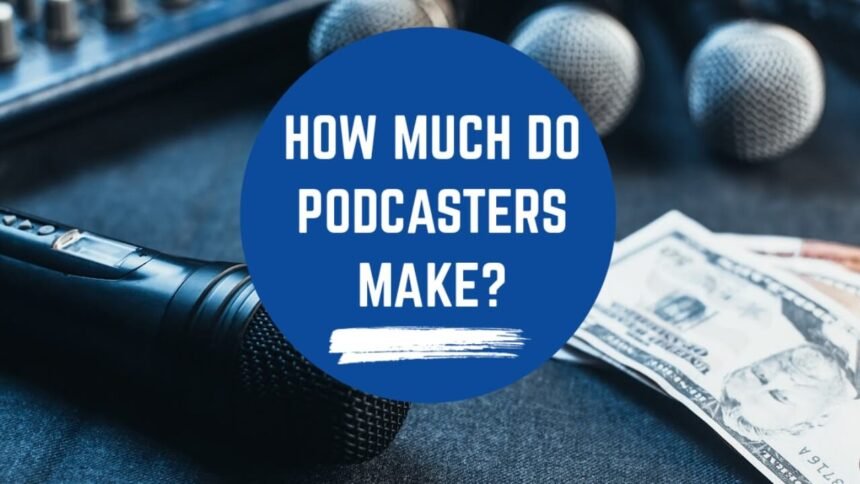Podcasts have exploded in popularity over the last decade, captivating millions of listeners across the United States with engaging stories, insightful interviews, and niche content that appeals to every imaginable interest. But for many aspiring creators, one question looms large: how do podcasts make money? Understanding the revenue streams behind podcasting is essential not only for financial success but also for sustaining high-quality content in a competitive industry. This guide will explore the various ways podcasters turn their passion into profit, providing insights, real-world examples, and expert perspectives to illuminate the business side of this dynamic medium.
The Rise of Podcasting and Its Financial Potential
Podcasting is no longer a hobbyist endeavor; it has become a thriving industry with billions of dollars in revenue generated annually. According to Edison Research, over 120 million Americans listen to podcasts monthly, with advertisers increasingly targeting this audience for its engaged and loyal listeners. The industry’s rapid growth has created numerous monetization opportunities, ranging from traditional advertising to subscription-based models.
Podcast hosts can tap into a wide array of revenue streams because the medium offers unique advantages over other content platforms. Unlike videos or blogs, podcasts allow for intimate, long-form conversations that build trust and loyalty. This engagement, in turn, makes monetization strategies more effective. As Emma D. White, a digital media expert, explains, “Podcasts create a unique space where listeners feel connected to hosts, which makes advertising and sponsorships significantly more impactful than many other digital platforms.”
Advertising and Sponsorships: The Most Common Revenue Stream
For many podcasters, advertising remains the primary source of income. This typically involves inserting ads at the beginning (pre-roll), middle (mid-roll), or end (post-roll) of episodes. Mid-roll ads, in particular, are highly effective because they occur while the listener is already engaged. Sponsors pay podcasters based on metrics such as CPM (cost per thousand downloads), with rates varying depending on the show’s reach and niche.
In addition to traditional ads, branded sponsorships offer a more integrated approach. Sponsors often collaborate with hosts to create content that aligns with their brand, such as a dedicated segment or a product mention. This strategy benefits both parties: the sponsor receives a genuine endorsement, and the podcaster earns higher revenue compared to standard advertisements. With podcast advertising revenue projected to exceed $2 billion in the U.S. by 2025, the opportunity is substantial for creators who can cultivate a dedicated audience.
Crowdfunding and Listener Support
Beyond advertising, many podcasters generate revenue through crowdfunding and listener support. Platforms like Patreon, Buy Me a Coffee, and Ko-fi allow fans to directly contribute to the shows they love. This model is particularly effective for niche podcasts that may not attract large advertisers but have a passionate community of listeners willing to support consistent content creation.
Crowdfunding provides a sense of financial stability and independence. Podcasters can offer exclusive perks to subscribers, such as bonus episodes, early access, or behind-the-scenes content. This not only incentivizes support but also strengthens the community around the podcast, making listeners feel more connected and invested in the show’s success.
Subscription-Based Models and Premium Content
Some podcasters have embraced subscription-based models, offering premium content behind a paywall. Services like Apple Podcasts Subscriptions and Spotify’s Anchor platform allow creators to monetize content through monthly subscriptions. These subscriptions often include ad-free episodes, early releases, or bonus shows that enhance the listener’s experience.
Subscription-based revenue provides a more predictable income compared to ad revenue, which can fluctuate based on downloads and market trends. It also allows podcasters to maintain creative control without relying heavily on sponsors. While this model works best for established podcasts with loyal audiences, it can be a significant source of income for creators willing to invest in producing high-quality content.
Merchandise and Product Sales
Another way podcasters make money is through merchandise and product sales. Popular shows often sell branded items such as T-shirts, mugs, stickers, or even books and online courses. Merchandise not only generates revenue but also promotes brand visibility, turning listeners into walking ambassadors for the podcast.
The key to successful merchandise sales lies in understanding the audience and offering products that resonate with them. For example, a fitness-focused podcast might sell workout gear or nutritional guides, while a true-crime podcast could sell themed apparel or collectibles. By aligning products with listener interests, podcasters can create a sustainable revenue stream that complements other monetization strategies.
Live Shows and Events
Podcasts with large followings sometimes extend their brand into live shows and events. These events can include live recordings, Q&A sessions, or fan meet-and-greets, often accompanied by ticket sales, merchandise, and sponsorship deals. Live shows provide an additional income layer and strengthen the connection between hosts and their audience.
Moreover, live events offer opportunities for networking and partnerships with other creators or brands, further expanding the podcast’s reach and revenue potential. Although organizing live shows requires planning and upfront investment, the return can be substantial for podcasts with an engaged and enthusiastic fan base.
Affiliate Marketing and Partnerships
Affiliate marketing is another lucrative avenue for podcast revenue. Hosts promote products or services and earn a commission for each sale or lead generated through their referral links. This strategy works particularly well when podcasters recommend products they genuinely use, enhancing credibility and trust.
Unlike standard advertising, affiliate marketing allows podcasters to earn passive income over time. A single episode can generate revenue long after its release, especially if it features high-value recommendations that continue to attract new listeners. Partnerships with brands and other creators can also amplify reach, increasing both affiliate income and the podcast’s overall visibility.
Analytics and Audience Insights: Maximizing Earnings
Understanding the audience is crucial for monetization. Podcasters who leverage analytics can identify listener demographics, episode performance, and engagement trends, enabling them to tailor content and marketing strategies effectively. Advertisers and sponsors are more likely to invest in podcasts that demonstrate strong engagement and a clearly defined audience.
Analytics tools also help creators experiment with different revenue strategies. By tracking listener behavior and feedback, podcasters can refine ad placements, test subscription models, or launch merchandise that aligns with audience preferences. This data-driven approach maximizes earnings while maintaining the quality and relevance of the content.
Conclusion: Turning Passion into Profit
The question how do podcasts make money has multiple answers, reflecting the diverse ways creators can monetize their content. From traditional advertising and sponsorships to subscriptions, merchandise, live events, and affiliate marketing, each strategy offers unique opportunities and challenges. Success requires a combination of creativity, audience engagement, and a deep understanding of market trends.
As the podcast industry continues to grow, the potential for revenue expands alongside it. Aspiring podcasters who strategically combine multiple income streams while prioritizing high-quality content can not only sustain their shows but also turn their passion into a profitable and fulfilling career. By embracing innovative monetization methods and leveraging audience insights, podcasters in the United States and beyond can thrive in an ever-evolving digital landscape.
you may also like
How to Build a Successful Private Clinic Business: A Comprehensive Guide for Aspiring Entrepreneurs






